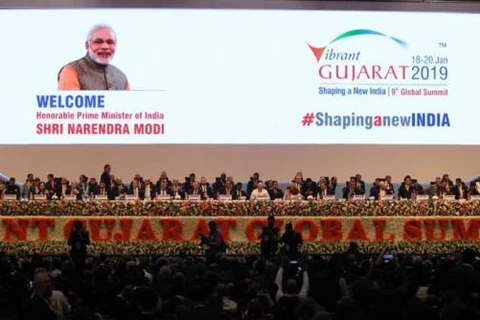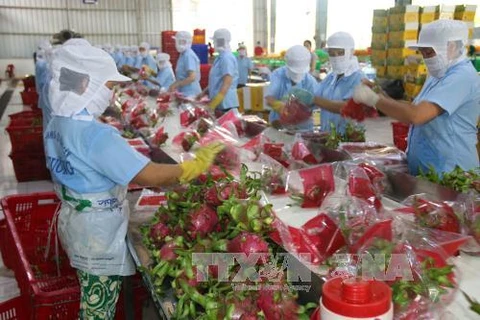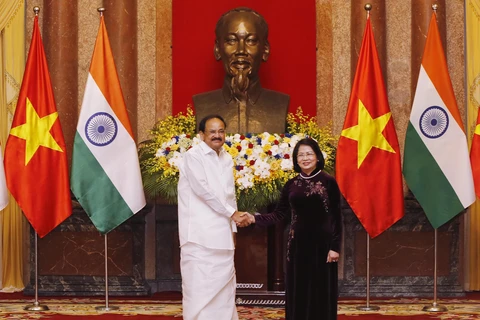Hanoi (VNA) – A scientific workshop on Vietnam-India development cooperation in energy security was held in Hanoi on May 27.
Prof. Dr. Nguyen Xuan Thang, Secretary of the Communist Party of Vietnam Central Committee (CPVCC) and Chairman of the CPVCC’s Theoretical Council, said Vietnam and India hold a lot of potential to develop energy cooperation – an important component in bilateral relations.
Thang, who is also the Director of the Ho Chi Minh National Academy of Politics, added that the two countries own diverse energy resources, especially renewable energy.
Vietnam has built a national energy development planning project for the 2016-2020 period, with a vision to 2035, according to Thang.
The project aims to ensure national energy security by diversifying energy resources; making effective and economical use of new energy resources, including renewable ones; developing a competitive energy market; protecting the environment; and ensuring sustainable development, he said.
The joint statements issued during recent high-level visits by Vietnamese and Indian leaders clearly defined energy cooperation as a pillar in the bilateral comprehensive strategic partnership, he added.
Bilateral energy collaboration is carried out in four main areas: nuclear energy, oil and gas, electricity, and renewable energy, Thang said.
Regarding nuclear energy, according to the official, Vietnam and India are implementing many important cooperation activities. The Indian government has assisted Vietnam in establishing the Vietnam-India training centre at the Da Lat Nuclear Research Institute, presented the Can Tho Oncology Hospital with Bhabhatron II Teletherapy treatment equipment, and sent Indian experts to Vietnam to train Vietnamese officials.
With regards to oil and gas, India was one of the earliest countries to have developed cooperation with Vietnam. The two sides have signed minutes on joint exploration of oil and gas, Thang said.
India has also provided many preferential credits for Vietnam in the field of power, he added.
As of 2018, India ran 176 renewable energy investment projects worth around 814 million USD in Vietnam.
Many major groups from India have invested in renewable energy development in Vietnam, such as TATA Group with solar power production in central Binh Thuan province; Adani Group’s construction of a renewable energy plant with the capacity of 1,000 MW; as well as Suzlon Group’s production of wind power turbines and the construction of wind power fields in the provinces of Ninh Thuan, Binh Thuan, Dak Lak, and Binh Dinh.
Meanwhile, Indian Ambassador to Vietnam Parvathaneni Harish expressed his belief that the bilateral cooperation in energy security will grow with greater strength, especially with the implementation of renewable energy projects.–VNA
VNA
























